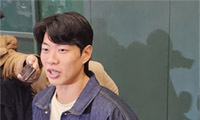Students in South Africa Fall Prey to Apartheid’s Legacy
KHAYELITSHA, South Africa - Seniors here at Kwamfundo high school protested outside the staff room last year because their accounting teacher chronically failed to show up for class. With looming national examinations that would determine whether they were bound for a university or joblessness, they demanded a replacement.
“We kept waiting, and there was no action,” said Masixole Mabetshe, who failed the exams and is now out of work.
The principal of the school, Mongezeleli Bonani, said in an interview that there was little he could do but give the teacher a warning. Finally the students’ frustration turned riotous. They threw bricks, punched two teachers and stabbed one in the head with scissors, witnesses said.
The traumatized school’s passing rate on the national exams known as the matric tumbled to just 44 percent.
Thousands of schools across South Africa are bursting with students who dream of being the accountants, engineers and doctors this country desperately needs, but the education system is often failing the very children depending on it most to escape poverty.
Post-apartheid South Africa is at grave risk of producing what one commentator calls another lost generation, entrenching the racial and class divide rather than bridging it. Half the students never make it to 12th grade.
“If you are in a township school, you don’t have much chance,” said Graeme Bloch, an education researcher at the Development Bank of Southern Africa. “That’s the hidden curriculum - that inequality continues, that white kids do reasonably and black kids don’t really stand a chance unless they can get into a formerly white school or the small number of black schools that work.”
A youth movement seeking equality in education is gaining energy. In Cape Town recently, thousands of students from township schools marched to City Hall in their school uniforms, asking for libraries.
# Scoring at Bottom
Despite increases in education spending since apartheid ended, South African children consistently score at or near bottom on international achievement tests.
And the wrenching achievement gap between black and white students persists. Here in the Western Cape, only 2 out of 1,000 sixth graders in predominantly black schools passed a mathematics test at grade level in 2005, compared with almost 2 out of 3 children in schools once reserved for whites that are now integrated, but generally in more affluent neighborhoods.
South Africa’s schools are still struggling with the legacy of the apartheid era, when the government established a “Bantu” education system that sought to make blacks subservient laborers. Hendrik Verwoerd, the prime minister who was the architect of apartheid, said Bantu must not be subjected to an education that shows him “the green pastures of European society in which he was not allowed to graze.”
# Discipline for Teachers
Most teachers in South Africa’s schools today got inferior educations under the Bantu system, and this has seriously impaired their ability to teach the next generation, analysts say. But South Africa’s schools also have problems for which history cannot be blamed, including teacher absenteeism, researchers say.
As South Africa has invested heavily in making the system fairer, the governing party made some serious mistakes, experts say. Teacher colleges were closed down, without adequate alternatives. The teachers’ union too often protected its members at the expense of pupils, critics say.
Teacher vacancies commonly go unfilled for months, said Angie Motshekga, South Africa’s new education minister. Principals cannot select the teachers in their schools or discipline them for absenteeism.
Ms. Motshekga said she had the strong backing of South Africa’s new president, Jacob Zuma, to give principals greater authority, and would also seek to change the law so the education department could pick principals directly and hold them accountable.
# Hungry for Knowledge
Despite last year’s violent episode, students at Kwamfundo Secondary School seem to feel genuine affection for their school and speak of their hunger for knowledge.
Even when they realized the science teacher was absent one recent first period, the student body president and his sidekick, a radiantly optimistic AIDS orphan, rose to lead a review session on evolution.
Later that day, Arthur Mgqweto, a math teacher, strode into the classroom. He teaches more than 200 students each day for a salary of $15,000 a year.
Mr. Mgqweto grew up in the countryside during the apartheid years, ashamed to go to school because he had no shoes. He finished high school in his 30s. His only son was stabbed to death at age 21 in a nearby township.
“I always explain to them, life is very hard,” he said. “They must get educated so they can take care of their families when they grow old.”
스마터리빙
more [ 건강]
[ 건강]이제 혈관 건강도 챙기자!
[현대해운]우리 눈에 보이지 않기 때문에 혈관 건강을 챙기는 것은 결코 쉽지 않은데요. 여러분은 혈관 건강을 유지하기 위해 어떤 노력을 하시나요?
 [ 건강]
[ 건강]내 몸이 건강해지는 과일궁합
 [ 라이프]
[ 라이프]벌레야 물럿거라! 천연 해충제 만들기
 [ 건강]
[ 건강]혈압 낮추는데 좋은 식품
[현대해운]혈관 건강은 주로 노화가 진행되면서 지켜야 할 문제라고 인식되어 왔습니다. 최근 생활 패턴과 식생활의 변화로 혈관의 노화 진행이 빨라지고
사람·사람들
more많이 본 기사
- 美, EU 전 집행위원 등 5명 입국금지… “미국 빅테크 표현 검열”
- 뚜레쥬르, 뉴욕 맨해튼에 직영 ‘매디슨 스퀘어 파크점’ 열어
- ‘헉’ 오바마케어 보험료가 연 4만불… 3
- “트럼프 행정부, 스페이스X에 동물보호구역 토지 양도 검토”
- 허위조작정보근절법, 與주도 처리될듯…텅빈 본회의장 밤샘 필버
- 경찰, ‘통일교 로비 의혹’ 한학자·윤영호 오늘 2차 접견조사
- [건강포커스] “모든 니코틴은 심혈관 독소…청소년 중독 방지 대책 시급”
- 대법원 “최종심 나올 때까지 시카고에… 1
- ‘마약 혐의’ 남양유업 창업주 외손녀 황하나 경찰에 체포
- 과거 임기 제한 주장했던 동영상 논란
- 해외서도 극과극 반응’대홍수’, 넷플릭스 글로벌 1위 차지”SF 걸작 vs 최악”
- 탁 트인 전망과 불꽃놀이로 즐기는 PALMS CASINO RESORT의 올인클루시브 2026 새해 맞이
- 트럼프, GDP 호조에도 “금리 내려야…동의못하면 연준의장 안돼”
- 델라웨어 차량등록국서 총격…州경찰관 1명 사망
- “ATM기 사용하기 겁나네”
- 이하늬, 기획사 미등록 혐의 검찰 송치.. “10월 정식 등록”
- 법무부, 엡스타인 자료 추가 공개… “전용기에 트럼프 8번 타”
- 조지아서 역주행 승용차 덮쳐 한인 등 2명 사망
- 법무부, ‘반자동 소총 금지’ 워싱턴DC 상대 소송… “위헌”
- 美, 카리브해로 특수부대 전개…베네수 작전 개시 임박했나
- 임윤아, 여우 주연상 쾌거.. “멋진 상 감사합니다”
- 46회째 1등 안나온 파워볼 복권…당첨금 약 16억 달러로 껑충
- 미주한인경찰협회, 지역 고교생 4명에 장학금 전달
- 박나래, 논란 또 추가..이번엔 ‘나혼산’ 조작 방송 의혹
- AI로 가속화되는 노동시장 개편
- ‘크리스마스 캐롤’과 산타 클로스 1
- ICE 홈디포 급습 한인 체포
- ‘차량 링거’ 전현무 의료법 위반 고발당해… “적법한 진료” 해명
- ‘올해는 ICE 이민자 체포 광풍의 해’
- 가족 얼굴 못 알아보고 성격 변한 부모님… “서양 기준으론 정상?”
- 1,480원까지 돌파한 환율… “내년에도 고공 행진”
- 공정위, 대한항공 마일리지 통합안 보완명령
- 한인 박찬영씨 교통시비 총격 사망...타코마중앙장로교회 40대 장로, 19일 레이시 도로서 참변
- 연말 여행객 최다… LAX 공항 ‘대혼잡’
- [정재민의 미디어풍경] 적과의 동침, 협력하며 경쟁하기
- 이영지 맞아? 러블리 분위기 물씬..180도 달라진 ‘뼈말라’ 몸매
- 9세 영 아티스트 박리하 ‘2026 LA 아트쇼’ 참가
- 잃어버린 피부감각 되찾아준다… 유방재건, 의외의 효과
- 베네수엘라 봉쇄에 금·은 값 또 최고
- 이번엔 ‘먹는 비만약’ 경쟁…알약 위고비, 미국서 판매 승인
- 올해 워싱턴DC 식당 92곳 폐업…‘역대 최다’
- 에어프랑스 엔진 화재 5천피트 급강하 ‘아찔’
- [새해 강화되는 노동법] 가주서 노동… 1
- 中과 무역갈등 휴전한 美 “中반도체 추가관세 18개월간 보류”
- ‘연방하원 도전장’ 척 박 예비후보 후원모임
- [화요칼럼] 단호박의 온기
- 2명에 모두 7,500달러 장학금
- 연말 ‘로드레이지’ 비극… 한인 총격 피살
- 송성문, 메디컬테스트에 초긴장 “혹시 뭐 나올까 걱정했다→미국 열심히 갔는데 맨손으로 돌아올까봐”
- 트럼프 “국가안보 위해 그린란드 필요…우리가 가져야”
1/5지식톡

-
 미 육군 사관학교 West Poin…
0
미 육군 사관학교 West Poin…
0https://youtu.be/SxD8cEhNV6Q연락처:wpkapca@gmail.comJohn Choi: 714-716-6414West Point 합격증을 받으셨나요?미 육군사관학교 West Point 학부모 모…
-
 ☝️해외에서도 가능한 한국어 선생님…
0
☝️해외에서도 가능한 한국어 선생님…
0이 영상 하나면 충분합니다!♥️상담신청문의♥️☝️ 문의 폭주로 '선착순 상담'만 진행합니다.☎️ : 02-6213-9094✨카카오톡ID : @GOODEDU77 (@골뱅이 꼭 붙여주셔야합니다…
-
 테슬라 자동차 시트커버 장착
0
테슬라 자동차 시트커버 장착
0테슬라 시트커버, 사놓고 아직 못 씌우셨죠?장착이 생각보다 쉽지 않습니다.20년 경력 전문가에게 맡기세요 — 깔끔하고 딱 맞게 장착해드립니다!장착비용:앞좌석: $40뒷좌석: $60앞·뒷좌석 …
-
 식당용 부탄가스
0
식당용 부탄가스
0식당용 부탄가스 홀세일 합니다 로스앤젤레스 다운타운 픽업 가능 안녕 하세요?강아지 & 고양이 모든 애완동물 / 반려동물 식품 & 모든 애완동물/반려동물 관련 제품들 전문적으로 홀세일/취급하는 회사 입니다 100% …
-
 ACSL 국제 컴퓨터 과학 대회, …
0
ACSL 국제 컴퓨터 과학 대회, …
0웹사이트 : www.eduspot.co.kr 카카오톡 상담하기 : https://pf.kakao.com/_BEQWxb블로그 : https://blog.naver.com/eduspotmain안녕하세요, 에듀스팟입니다…
케이타운 1번가
오피니언
 조환동 / 편집기획국장·경제부장
조환동 / 편집기획국장·경제부장 AI로 가속화되는 노동시장 개편
 민경훈 논설위원
민경훈 논설위원‘크리스마스 캐롤’과 산타 클로스
 정재민 KAIST 문술미래전략 대학원 교수
정재민 KAIST 문술미래전략 대학원 교수 [정재민의 미디어풍경] 적과의 동침, 협력하며 경쟁하기
 김영화 수필가
김영화 수필가 [화요칼럼] 단호박의 온기
 김정곤 / 서울경제 논설위원
김정곤 / 서울경제 논설위원[만화경] 안중근의사 유해봉환 사업
 권지숙
권지숙 오후에 피다
 옥세철 논설위원
옥세철 논설위원말살되고 있는 유럽의 성탄절 전통, 그 원인은…

외로운 이웃들
 조지 F·윌 워싱턴포스트 칼럼니스트
조지 F·윌 워싱턴포스트 칼럼니스트 [조지 F. 윌 칼럼] MIT에 대한 트럼프의 무분별한 공격
1/3지사별 뉴스

‘연방하원 도전장’ 척 박 예비후보 후원모임
연방하원에 도전장을 낸 척 박(한국명 박영철) 예비후보 후원 모임이 지난 18일 열렸다. 척 박의 부친인 박윤용 뉴욕주하원 25선거구 (민주)…
‘경찰 무력사용지침 갱신 의무화’ 입법 초읽기

‘올해는 ICE 이민자 체포 광풍의 해’
올 한해동안 버지니아와 메릴랜드, DC 등에서 연방 이민당국에 체포된 사람이 1만명이 훌쩍 넘는 것으로 조사됐다. 또 미 전국적으로는 22만명…
“ATM기 사용하기 겁나네”

연말 ‘로드레이지’ 비극… 한인 총격 피살
연말을 맞아 도로 위에서 순간적으로 벌어진 운전 중 시비가 40대 한인 가장의 총격 피살 비극으로 이어졌다. 워싱턴주 레이시 경찰국과 서스턴 …
엡스타인 파일 공개 다음날 트럼프 사진 삭제…야당서 탄핵 경고

오늘 하루 이 창 열지 않음 닫기 























































.png)


댓글 안에 당신의 성숙함도 담아 주세요.
'오늘의 한마디'는 기사에 대하여 자신의 생각을 말하고 남의 생각을 들으며 서로 다양한 의견을 나누는 공간입니다. 그러나 간혹 불건전한 내용을 올리시는 분들이 계셔서 건전한 인터넷문화 정착을 위해 아래와 같은 운영원칙을 적용합니다.
자체 모니터링을 통해 아래에 해당하는 내용이 포함된 댓글이 발견되면 예고없이 삭제 조치를 하겠습니다.
불건전한 댓글을 올리거나, 이름에 비속어 및 상대방의 불쾌감을 주는 단어를 사용, 유명인 또는 특정 일반인을 사칭하는 경우 이용에 대한 차단 제재를 받을 수 있습니다. 차단될 경우, 일주일간 댓글을 달수 없게 됩니다.
명예훼손, 개인정보 유출, 욕설 등 법률에 위반되는 댓글은 관계 법령에 의거 민형사상 처벌을 받을 수 있으니 이용에 주의를 부탁드립니다.
Close
x